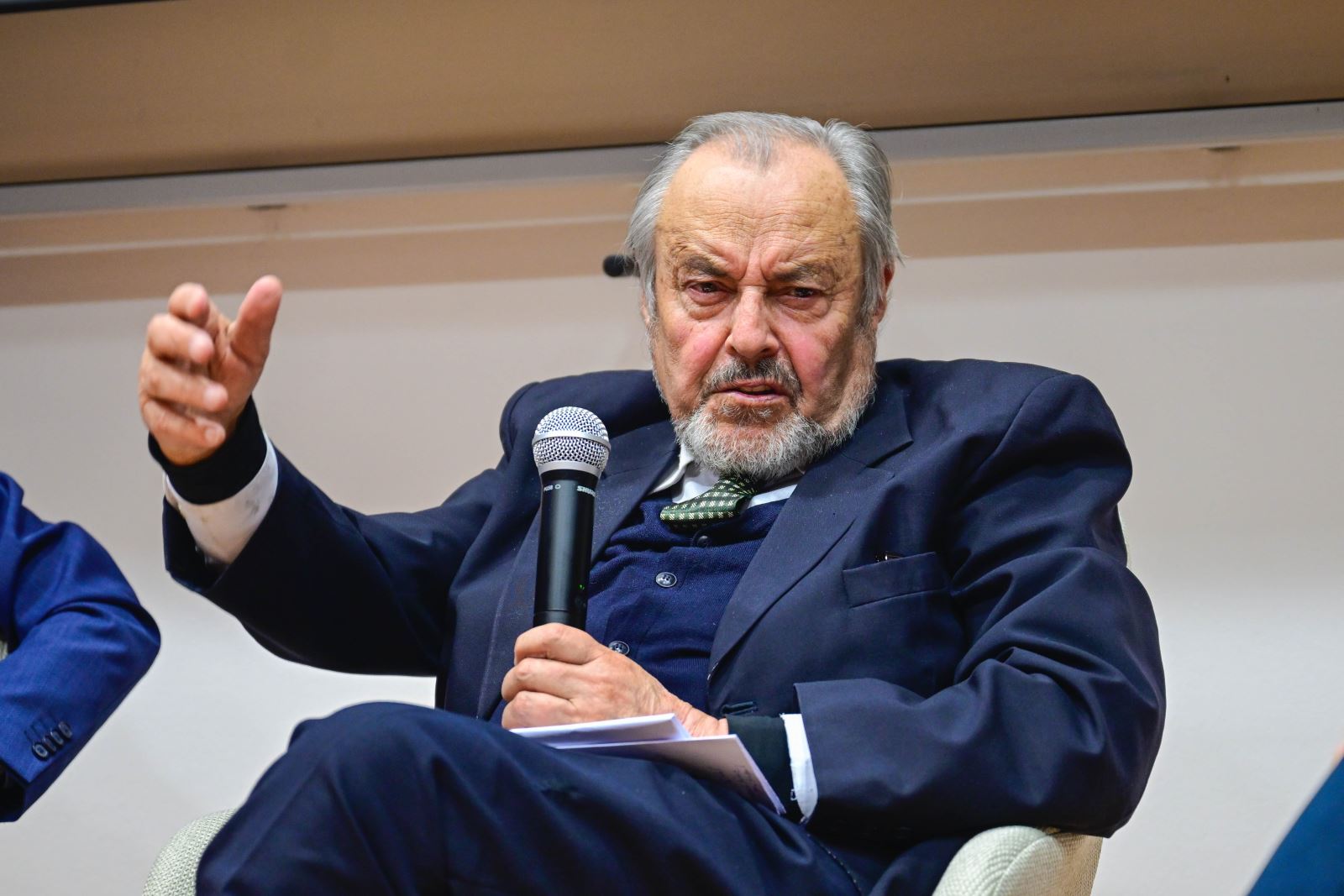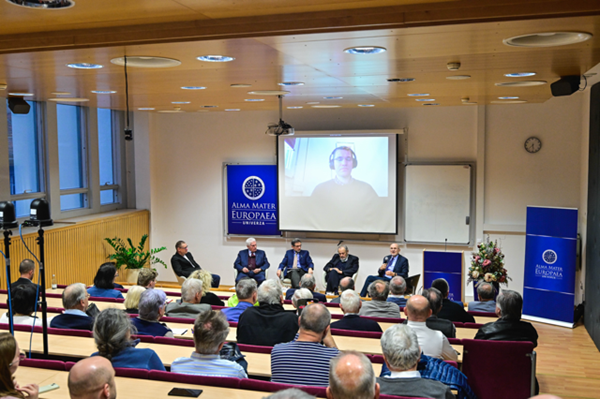
The World, Europe, and Slovenia – Where Are You Going (Quo Vadis)?
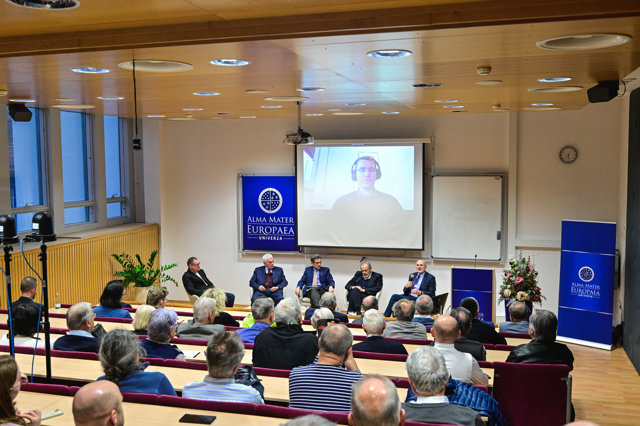
Alma Mater Europaea University, in collaboration with the Assembly of the Republic, organized a public forum on Wednesday, April 2nd, where distinguished guests discussed the future of the world, Europe, and Slovenia in light of current geopolitical challenges.
The world faces numerous crises and turning points that affect the future of nations, regions, and individuals. The uncertain global and European geopolitical situation raises many questions: How can we identify the key factors shaping our future? How do traditional European partners and adversaries influence the ongoing events? What role does Ukraine play in this context?
The panel discussion featured:
Dr. Ernest Petrič – diplomat, former President of the Constitutional Court of the Republic of Slovenia, former Ambassador to the USA
Dr. Ludvik Toplak – Rector of Alma Mater Europaea, former Ambassador to the Holy See
Dr. Aleš Maver – Professor of History and expert on the situation in Ukraine
Jelko Kacin – Defense expert, politician, Member of Parliament, and diplomat (former Permanent Representative of Slovenia to NATO)
Dr. Igor Kovač (online) – Researcher at the Center for Cyber Strategy and Policy at the University of Cincinnati
Dr. Ivan Janez Štuhec moderated the public forum.
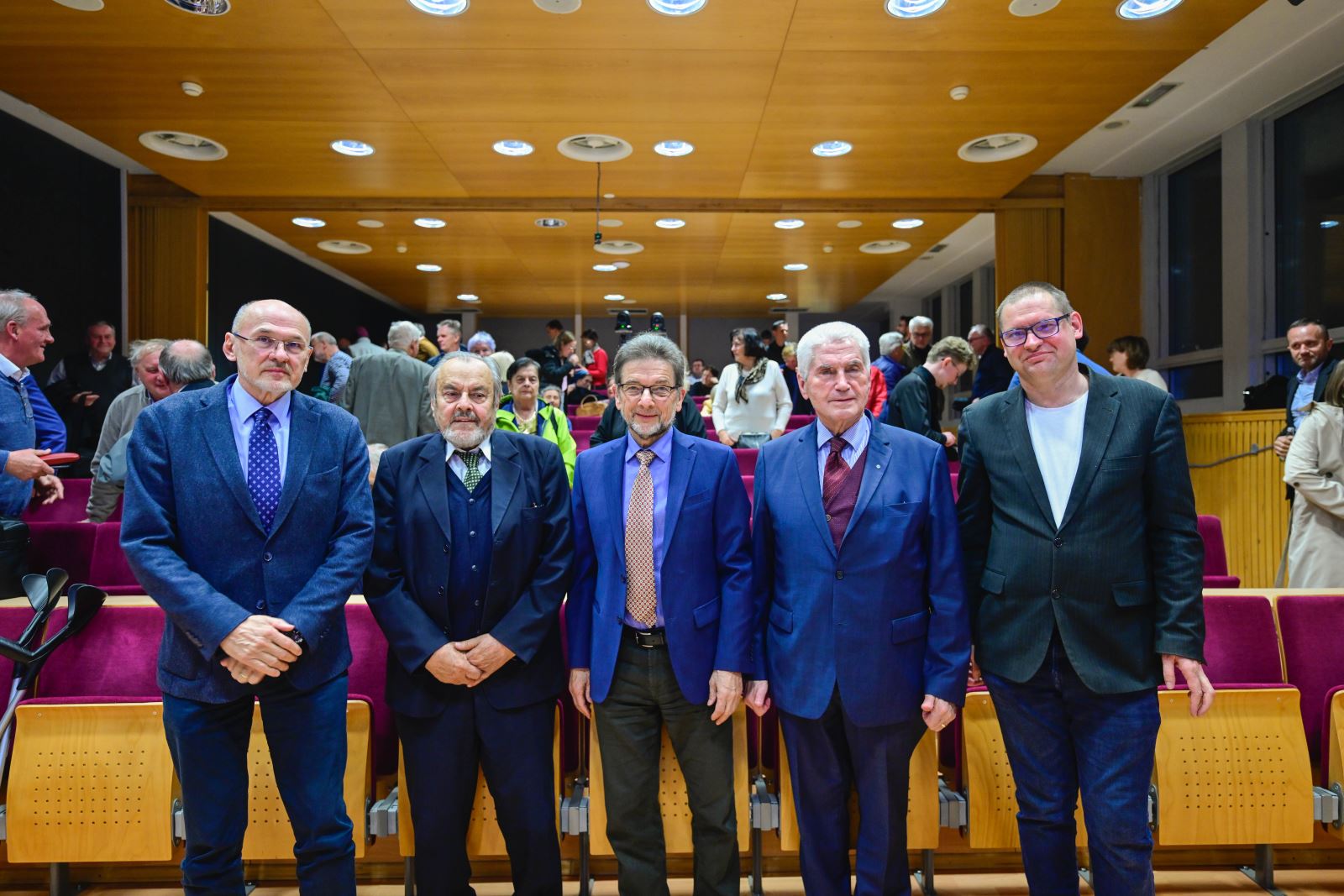
The guests addressed current challenges and offered insights into possible development scenarios, considering historical, political, security, and strategic perspectives.
"Where is Slovenia’s homeland, and what is its place in Europe? It seems that we might be falling behind others. We have a goal, but perhaps we need to redefine it. Everyone should reflect on where they are going and what the future holds and create their own place in the homeland. It is not enough to dream about becoming Switzerland. We must create the conditions here to become something greater and create Switzerland here in Slovenia. It is essential to awaken the awareness of Slovenian national identity so that people will know where they belong, where they come from, and where their homeland is," emphasized Prof. Dr. Ludvik Toplak, Rector of Alma Mater Europaea.

"It is a fundamental question of democracy – can we be who we are? The violent and feral assimilation of all nations bordering today’s Russian Federation is a fear that drives its neighbors. But we behave like an island somewhere in the Mediterranean, perhaps even a bit behind Malta, near the Canary Islands, far enough away that we don't have to deal with Moscow. Unfortunately, that is not the case. If we don’t understand this and position ourselves where we belong, will we be compared or not? Will we be overtaken, as the Poles have already overtaken us? We lag behind the Czech Republic, Slovakia, and Poland in economic growth, while the Baltic states are charging ahead and overtaking us. It's about us – do we want to be part of the future, or will we romantically dwell on our past? Yes, our past is no longer enough. We must be vigilant, we must be where historical necessity dictates, and today it is necessary to support Kyiv, Ukraine’s territorial integrity, its EU membership, and its place in the collective transatlantic alliance with NATO," concluded Jelko Kacin after the event.
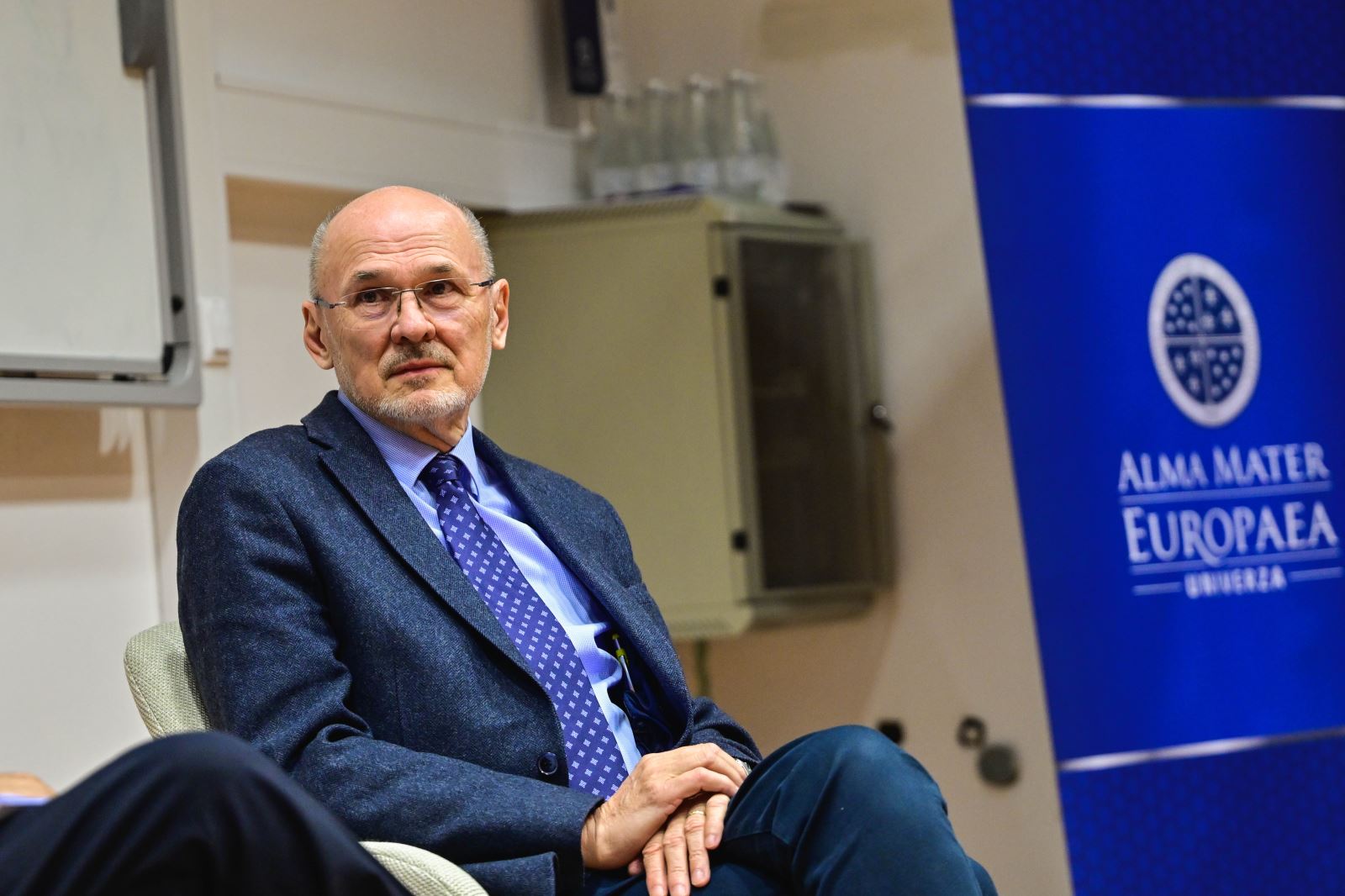
Such discussions are of great importance, as they help Slovenians learn political culture, enabling conversations that are non-aggressive, non-insulting, and, where possible, argument-based about important matters concerning our country, which is a state for all – the left, the center, and the right. This is a country that, as a democracy, must understand that the essence of democracy is not uniformity but the coexistence of differences within a democratic framework. Young people must realize that this country, which ultimately depends on future generations, is serious," warned Dr. Ernest Petrič.
